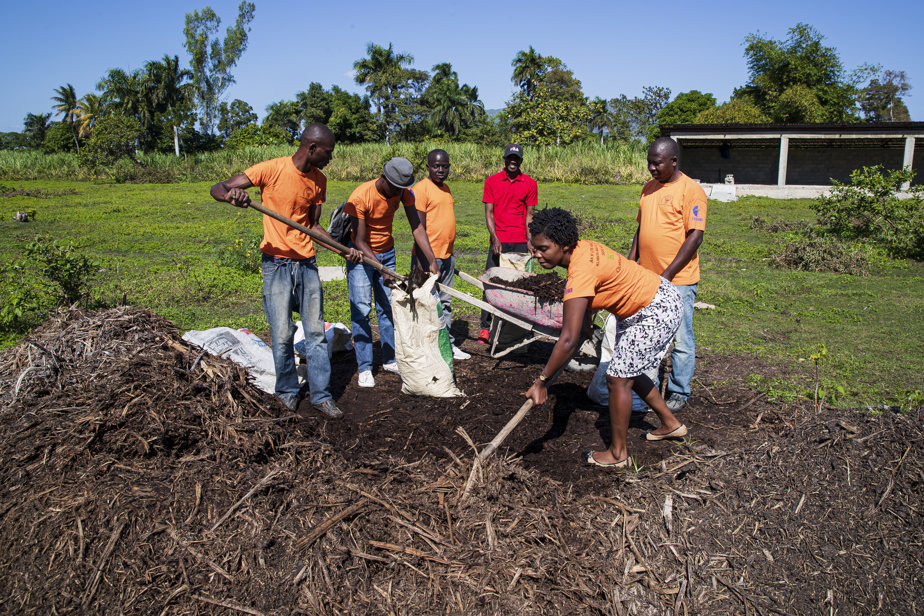The Canadian International Development Agency (CIDA) was created in 1968 to help developing countries improve their socio-economic situation in the context of decolonization and independence. Since then, the Canadian International Development Agency and a large number of Canadian institutions have built strong expertise to meet the evolving needs of developing countries.
Mario Renault Member of the International Development and Cooperation Thinking Group (GREDIC) and two other five locations *
In 2013, the Harper government merged the Canadian International Development Agency into the Department of Foreign Affairs and International Trade (DFAIT). Everything indicates that this decision is a far cry from improving the management of international aid to Canada, which is now in excess of $ 6 billion annually.
In 2018, the Organization for Economic Cooperation and Development (OECD) criticized the overly centralized and bureaucratic regulation of the Canadian aid program, and noted that employees did not always have access to professional and technical resources to implement the new, enunciated women’s aid policy. In 2017.
The review also noted a lack of plans for aid effectiveness, recipient country engagement, and inclusive partnerships. Finally, the OECD concluded that there was no greater consistency between development aid, diplomacy and trade policies for the new ministry, yet the primary reason for implementing the merger was provided.
Help and policy
During the merger, Canadian International Development Agency staff found themselves in an environment dominated by foreign policy officers. According to the Global Affairs Canada Reports (GAC), security and peace issues, multilateral aid, and global issues have received more investment since 2014 compared to traditional bilateral (country-to-state) aid. Aid is becoming more and more politicized: for example, Ukraine, which is not a developing country, received approximately $ 800 million in Canadian funds within six years. The dominance of the political aspect is also likely to put an increasing number of well-known Canadian institutions abroad out of play. This makes it easier for the GAC to transfer funds to multilateral organizations, rather than developing programs with local and Canadian partners.
International cooperation and aid are more necessary than ever in a post-pandemic context to help underprivileged countries face many challenges such as combating poverty, adapting to climate change, supporting democratic governance, equitable access to basic services and epidemic prevention.
It is not just a matter of sympathy, charity, or solidarity, but it is also in our interest to live in a more just, equitable, safe and prosperous world.
The Canadian international assistance program, due to its size and complexity, should be managed by persons with long experience and deep knowledge of sustainable, fair and equitable development in the context of interdependence. However, at present, there is almost no senior AMC official responsible for development cooperation and assistance programs who has experience and knowledge in implementing international development programs.
The situation on the ground has also greatly deteriorated, as fewer people are interested in publishing abroad as this experience has become less valuable and less valuable. In addition, virtually all the domestic infrastructure for technical and professional resources put in place by the Canadian International Development Agency to support the implementation of development programs has disappeared, as a result of perverse regulatory requirements facing difficulty in understanding the adaptations required in the fight against poverty and improvement. Human rights or combating climate change.
In headquarters, employees face many non-facilitative bureaucratic processes that govern program and project management as well as relationships with partners. This knowledge Red tape It is more valuable than development experience. Finally, the number of technical and professional staff supporting policy development, program formulation and implementation has been reduced to a minimum.
The ODA budget has increased dramatically since the Trudeau government came to power. However, the ODA / GDP ratio continued to decline from 0.026%, placing Canada at 16the OECD mattress. But the GAC has fewer staff with the in-depth knowledge and experience required to effectively administer and deliver Canada’s international assistance program.
This situation must be corrected if Canada is to regain its leadership in this field. We must seriously think about re-establishing a specialized and independent agency, with people with experience, and operating mainly within the framework of comprehensive partnership agreements with partner countries and peoples, as well as with international and Canadian institutions.
* Co-signers, GREDIC members, made up of former leaders of cooperation organizations and the Canadian International Development Agency: Robert Littender, Nicole Saint Martin, Nigel Martin, Yves Bettillon, Pierre Veroneau





